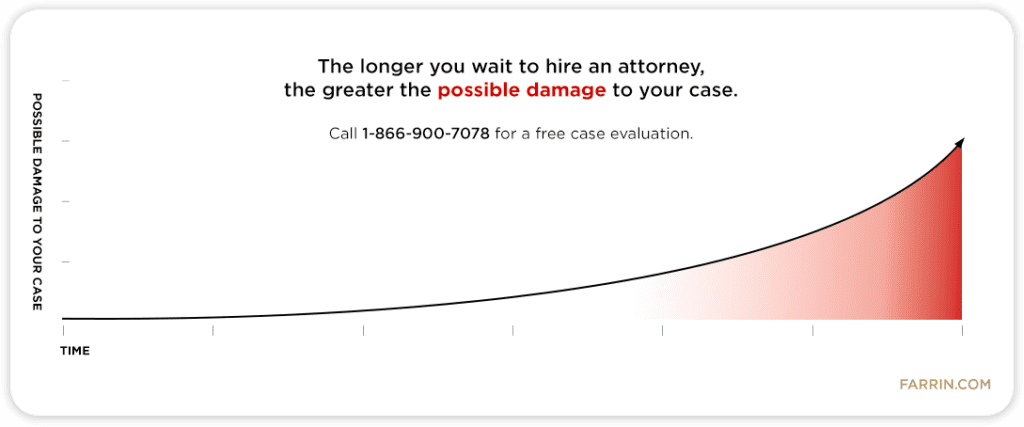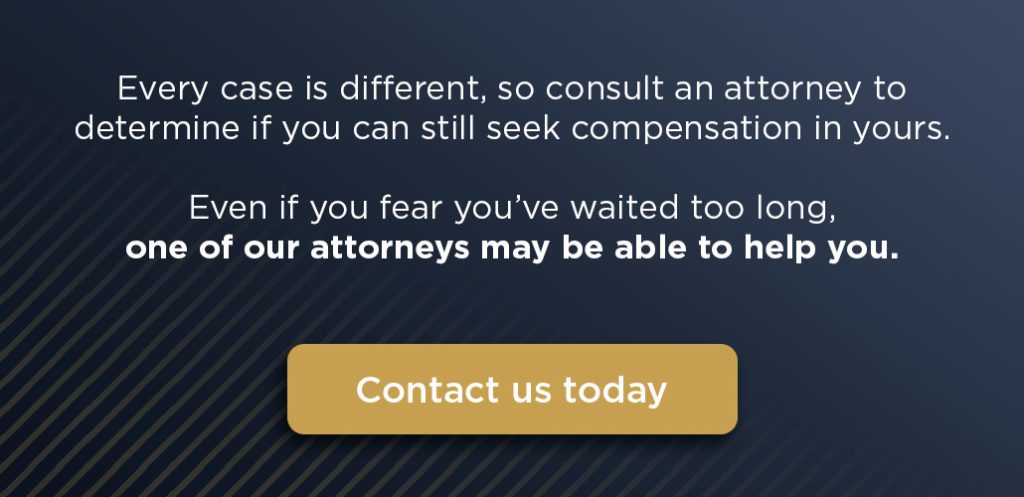Time is a valuable resource, so it’s understandable why you may not be in a hurry to file a personal injury claim after you’ve been harmed due to someone else’s negligence. After all, filing a claim takes time and is inconvenient and un-fun, so it can easily become a low-priority or no-priority task. It’s also a huge hassle and you have other priorities, including recovering from your injuries and getting back to your life.
Perhaps you’ve recently been injured and you want to know how long you have to file a claim. Another possibility is that you were injured a while ago and now you’re worried that too much time has passed. In any event, you need to know about the South Carolina statute of limitations and how it applies to you in your unique case.
I’ll answer some common questions based on my experience, and here’s the key takeaway. Whatever your situation, the closer you get to South Carolina’s statute of limitations, the harder it can be to achieve a favorable outcome and receive compensation.
In addition, you should never wait to consult with an attorney when you could have a claim because, even if the case still has a few months before the statute of limitations passes, your attorney needs sufficient time to do an adequate investigation.
Can you seek compensation? Call us right now at 1-866-900-7078. We’ll evaluate your case absolutely free, and determine if you meet the South Carolina statute of limitations.
What Is a Statute of Limitations?
A statute of limitations for South Carolina personal injury law is your deadline for filing an insurance claim or lawsuit after an injury. Generally speaking, the clock starts ticking on the statute of limitations when the harm occurs or when the injured person becomes aware of the harm. If you try to file a claim after the statute of limitations deadline for any reason, you may not be able to recover any compensation.
Time Limits on Seeking Justice and How an Attorney Can Help
It’s a common misconception among some injured parties that so long as some kind of record of the incident exists, such as a police report, they can file a claim or lawsuit at any time. But that’s not the case. Unfortunately, cases are often dismissed in South Carolina because they weren’t filed within the statute of limitations. It’s unfortunate, but it doesn’t have to be that way for you.
Here’s an example of how my fellow James Scott Farrin Attorney Preston Lesley was able to save his NC client’s claim from being denied despite the looming deadline of the statute of limitations. Missing the deadline wouldn’t have been the client’s fault, but it might have doomed their case anyway:
“We recently filed a wrongful death lawsuit against a national delivery service regarding a truck accident. Unfortunately, the defendant restructured their business and there was uncertainty about whether we’d be able to pursue our claim within the statute of limitations. We created an agreement with them to prevent a dispute and ensure that our claim moved forward. Without our help, the family of the deceased might have lost their right to pursue justice.”1
What’s the Statute of Limitations Deadline for Personal Injury Claims in South Carolina?
According to the South Carolina Code of Laws, a three-year deadline generally applies to personal injury claims such as:
- dog bites, and
Remember: the clock generally starts from the moment you suffered harm. However, it’s possible that you were harmed without realizing it or that the effects of your injury are delayed. In that case, the moment you realize you’re injured, within reason, is when the time limit starts. An attorney can help you determine your best course of action wherever you are in the process.
Why Is There a Statute of Limitations in South Carolina?
Statutes of limitations exist in all U.S. states, and South Carolina is no exception. They vary by state, but each functions to set a time limit for when you must file insurance claims or lawsuits. There are two main purposes to statutes of limitations:
- To ensure claims are handled in a timely manner.
- To prevent facts and evidence from becoming unusable over time.
Both reasons may serve the best interests of all parties. Claims over events that took place in the distant past can create problems that make it difficult or impossible for the courts to try to achieve a fair resolution.
Are There Exceptions to the South Carolina Statute of Limitations?
Yes, but while there are certain exceptions to South Carolina’s statute of limitations that give you more time, some exceptions give you less time to file your claim. Here are two examples:
The Discovery Rule
The “discovery rule” states that the statute of limitations “begins to run when a party knows or should know, through the exercise of due diligence, that a cause of action might exist.”
It’s possible that you’ve been injured and haven’t realized it. For example, a doctor may accidentally leave tools and materials inside your body after a surgery. In these cases, the statute of limitations wouldn’t start until you had enough time to reasonably discover the harm itself. Keep in mind that there are other laws, such as “statutes of repose,” that set other types of time limits on actions, so it is important to contact a knowledgeable attorney straight away if you suspect anything could be wrong.
The South Carolina Tort Claims Act
In specific circumstances, the statute of limitations may be even shorter than the general time limit. For instance, under South Carolina law, the statute of limitations to file a suit against a government entity is generally two years. But even that two-year exception has exceptions!
No matter what your circumstances are, the best time to get started with your claim is immediately after the harmful event occurred – but not before contacting a personal injury attorney who can offer guidance.
Does It Take a Long Time to File a Claim?
The wheels of justice turn slowly and processing a claim takes time. Furthermore, some insurance companies and their lawyers may take actions to slow the process further. That’s why South Carolina’s statute of limitations for personal injury cases may seem like a long time, but it really isn’t. The faster you file, the faster your case can be resolved, with a greater chance for a positive outcome than if you delay.
If you’ve hired a lawyer, they will need to investigate your case to try to get you maximum compensation. This can include:
- interviewing witnesses whose memories may fade or change over time,
- collecting evidence and records that can get destroyed, lost, or forgotten as time passes,
- examining the unique circumstances of the specific event that harmed you,
- speaking with your doctors,
- identifying any and all proper defendants (there could be multiple parties responsible)
- negotiating with the insurance company, and
- taking your case to trial, if necessary
Why Should You Act Quickly to File Your Claim?
Not acting quickly can be detrimental to your case even if you ultimately receive compensation. If you’d acted sooner, you may have been able to receive an even larger recovery.
If I Don’t Know the Statute of Limitations for My Case, What Do I Do?
Contact an attorney. An attorney can help you understand and manage the timing of your claim with the goal of obtaining a favorable outcome and just compensation.
Do you need a free case evaluation from one of our attorneys? We have helped over 55,000 people and we want to help you, too. Contact us right now at 1-866-900-7078 or online. You can also live chat with one of our team members.
You May Also Be Interested In
The Statute of Limitations for Car Accidents in North and South Carolina







